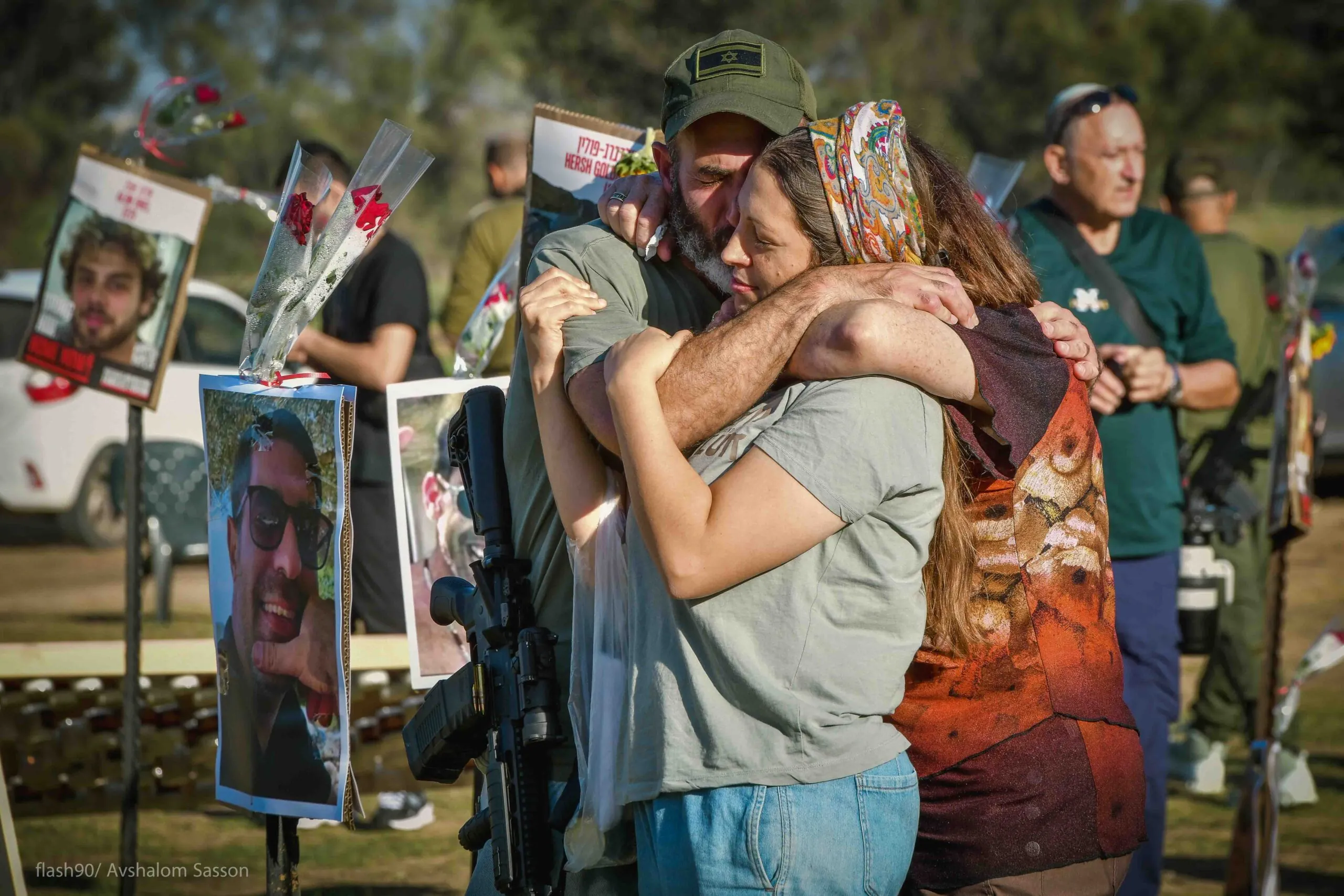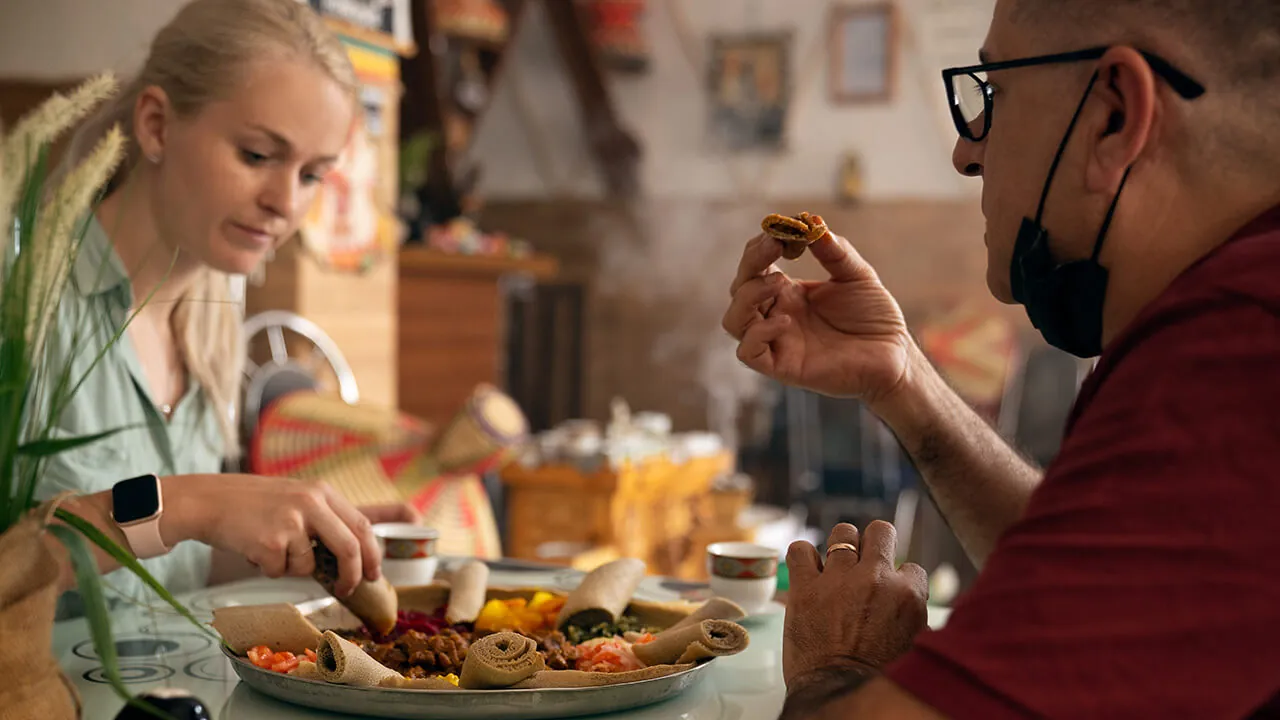
An initiative begun twenty years ago , ![]() is about picking up the lives of people going down one path and placing them on a completely different one—a better one. Whether it is about pulling someone out of a pit of debt they could never emerge from in the natural, offering legal aid against religious injustice, taking care of medical needs, or investing in a young person’s education, housing or business endeavor—
is about picking up the lives of people going down one path and placing them on a completely different one—a better one. Whether it is about pulling someone out of a pit of debt they could never emerge from in the natural, offering legal aid against religious injustice, taking care of medical needs, or investing in a young person’s education, housing or business endeavor—![]() is about effecting change that will matter ten years or even a generation from now.
is about effecting change that will matter ten years or even a generation from now.
As always, the names and personal details are sometimes changed to protect these believers and their businesses from persecution, but their stories—both invigorating and heart wrenching—are very real.
Like the story of Nara, a single mother of two young boys and owner of a popular Ethiopian restaurant in southern Israel. By “popular,” we mean before COVID hit. The restaurant (pictured above) drew many locals and tourists and comfortably provided for her and her boys. In the past year, however, restaurants in Israel were forbidden to open, though rent and other business expenses continued. Now COVID restrictions in Israel have been lifted and business is picking up again. Nara could now take the path of building her business back up while carrying a year’s worth of bills—or, with ![]() ’s help, that financial weight can be alleviated, and she can run her business from a place of strength and stability.
’s help, that financial weight can be alleviated, and she can run her business from a place of strength and stability.
Every year ![]() supporters are the force behind hundreds of stories of changed lives like Nara. Come taste and see that the Lord is good.
supporters are the force behind hundreds of stories of changed lives like Nara. Come taste and see that the Lord is good.
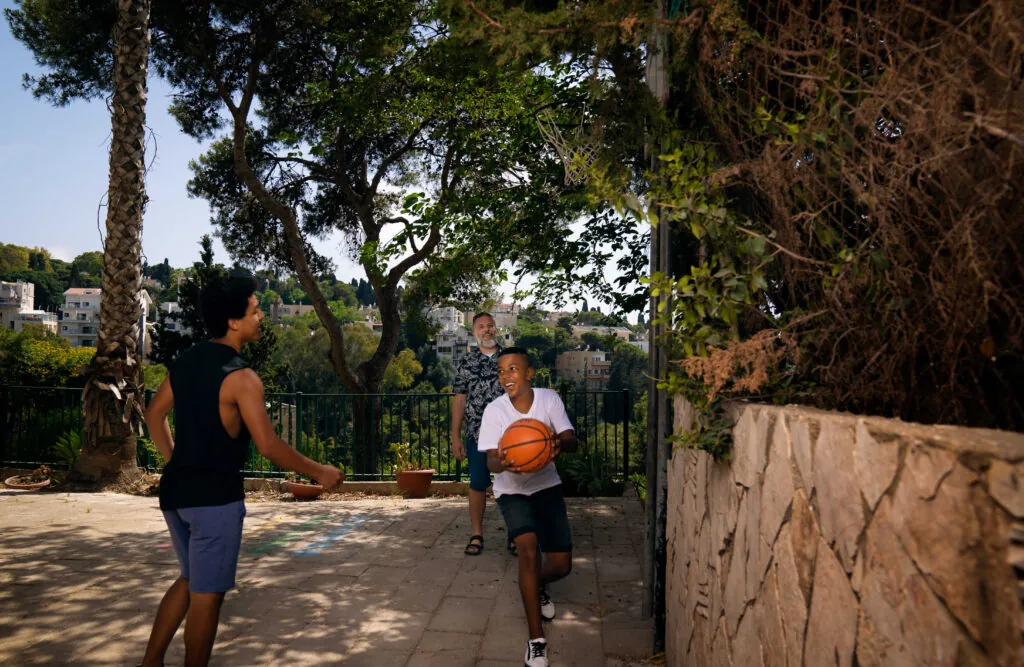
1: Jonathan
I’ve been a pastor at Kerem El congregation for almost six years, but about three years ago my heart began to stir for some of the younger boys in our congregation who had no father figure in their life. I grew up without a father at home, but only as an adult did I grasp what I’d missed, and I didn’t want them to also miss out on this fundamental need.
It all happened quite organically. It’s not like we planned a program or anything. The idea wasn’t just to sit and teach them—if I were going to be like a dad to them, I needed to do things dads would do with their kids. So, we began spending time together hanging out, playing ball or going bowling. In the process of these activities, the boys began to open up and we spent lots of time discussing important life issues.
This past year I realized the boys’ Bar Mitzvah was coming up. In Jewish culture, this is an important coming of age milestone as boys are recognized to be at the doorway of manhood. Traditionally, there’s a ceremony in which they are blessed by their family and leaders and are considered responsible for their actions before the Lord.
In our desire to make this event as memorable as possible for them, we decided to put together a checklist of challenges they would have to accomplish—everything from how to change a tire, tie a tie, cook a meal, properly handle a BB gun and perform basic house repairs. For these tasks we recruited men from the congregation who would each share from their area of expertise. After their training, they would set out to prove they had mastered the skill. Then, after a bit of instructions, we invited their mothers to a dinner so the boys could demonstrate what they had learned about manners and the proper treatment of a lady.
Upon completion, the boys were rewarded with several days in Israel’s most southern city, Eilat. There they visited several iconic attractions, including snorkeling in the Red Sea with dolphins and walking the promenade.
The trip was such a success and served to only bring the boys closer to us and to the Father we are trying so hard to emulate. Our own congregational budget would not have been able to cover such a trip. I am grateful that ![]() caught the vision and teamed up with us to make the boys’ Bar Mitzvah a worthy experience. Beyond that I hope and pray the vision of spiritual fathers raising up fatherless boys will spread to congregations across our nation.
caught the vision and teamed up with us to make the boys’ Bar Mitzvah a worthy experience. Beyond that I hope and pray the vision of spiritual fathers raising up fatherless boys will spread to congregations across our nation.
You can help make more IStandwithIsrael stories like these. When you donate to Maoz Israel, you become part of stories that will continue to impact Israel for generations!
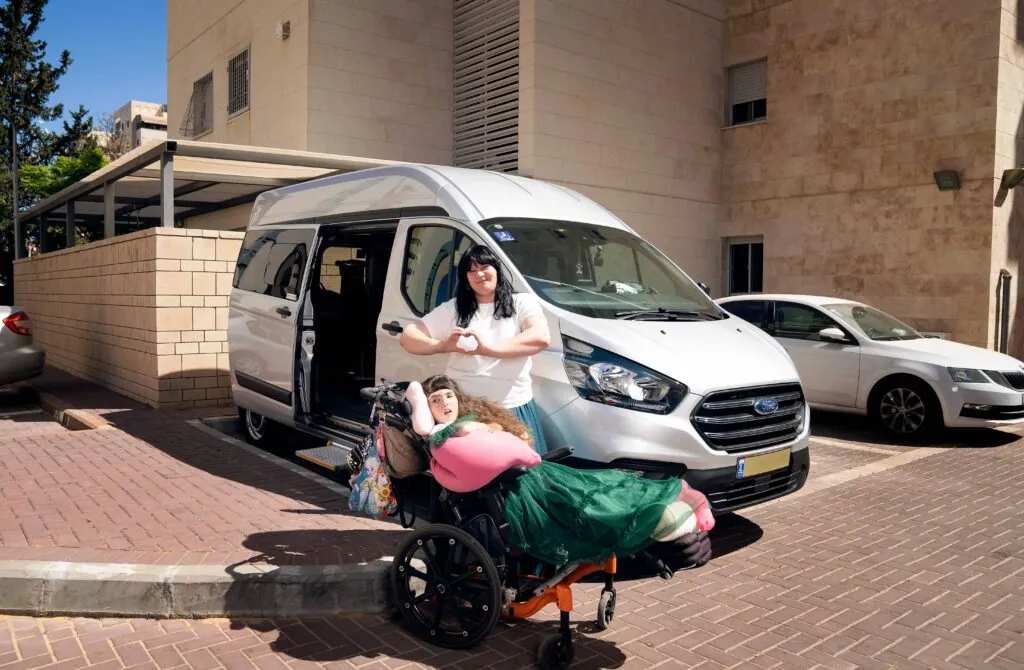
2: Naomi
Naomi, an immigrant from Russia, has a surprising level of joy for someone who has struggled so much in her life.
Naomi and her husband Oleg had three kids before he abandoned the family for a life of drugs and alcohol and moved in with another woman. Before he left (and while Naomi was visiting her ailing mother abroad) Oleg decided to take on a “renovation project” in their apartment and smashed every wall and piece of furniture they owned.
Still, to her the story is only worth telling because of how God came through for her. Members of her congregation took it on themselves to completely restore the walls and fill her home with new furniture.
There is, however, one day that even she can’t share about without a heavy heart. That day was March 1, 2016.
It began like any other day, going to and returning home from her job at the Gali shoe shop. Her then husband had been out drinking but had come home to help their son with a math test he would have the next day. Their daughter, Shirel, the youngest of the three children, wanted badly to hop to the candy shop across the street. Oleg offered to take her and so finally Naomi gave in.
It was only a couple of minutes later when she heard the screech of tires and the sound of impact. By the time Naomi made it down to the street level, an ambulance had already been called and someone was performing CPR on Shirel. She had been hit crossing at the crosswalk and had sustained a severe head injury.
In the emergency room the doctors said Shirel had no neurological responses and would never breathe on her own again. Only one doctor offered hope if they transferred to another hospital. Naomi agreed to the transfer, and despite the flood of emotions, she felt the Lord close, comforting her.
After three days of tests, doctors in the second hospital were ready to diagnose her as brain dead when one doctor insisted there was evidence of brain responses near the left eye. Naomi embraced the news and boldly told the doctor, “She will have more responses!”
Within days Shirel could breathe on her own again. She spent several months in the hospital and then in a rehab center. Slowly but surely her brain began to heal in small ways. Just as Naomi was rejoicing over Shirel’s improvements, she herself was diagnosed with cancer. The doctors told her that while it was incurable, it was treatable. If she agreed to undergo a specific treatment (for the rest of her life) they could stall the disease’s progression. Naomi agreed and as far as she’s concerned God has been good to her because her treatment is not debilitating, and she still has strength to care for her daughter.
About a year ago Shirel was released to go home, and though doctors claim she will never walk or talk again, her ability to interact has stunned experts. With Shirel home, the greatest challenge was getting her around. She was now doing well enough to go to school again, but Naomi had no way to get her there in her wheelchair. Vehicles in Israel are incredibly expensive—but vehicles with handicap capabilities are almost unattainable to the average Israeli. Thankfully, the government medical services offered to cover 80% of the vehicle cost—but that still left her needing to come up with tens of thousands of dollars.
![]() had found Naomi last year through her congregation when they were giving out emergency funds for groceries during the COVID lockdown. However, when the ISWI team heard more of Naomi’s plight, they contacted her again to let her know they had approved the remaining balance to purchase the specialized vehicle. Naomi responded with tears of joy.
had found Naomi last year through her congregation when they were giving out emergency funds for groceries during the COVID lockdown. However, when the ISWI team heard more of Naomi’s plight, they contacted her again to let her know they had approved the remaining balance to purchase the specialized vehicle. Naomi responded with tears of joy.
“It was like explosions of joy went off in my mind. I just cried at how good God is. Now I can take her to school every day and sometimes I take her to the beach. Shirel just turned 12 and I see little improvements all the time. I am overwhelmingly thankful to have her in my life and I haven’t given up hope. I still pray for the day she will be able to play again. But I dream of the day I will hear her say the word ‘Ima’ (Mommy).”
You can help make more IStandwithIsrael stories like these. When you donate to Maoz Israel, you become part of stories that will continue to impact Israel for generations!
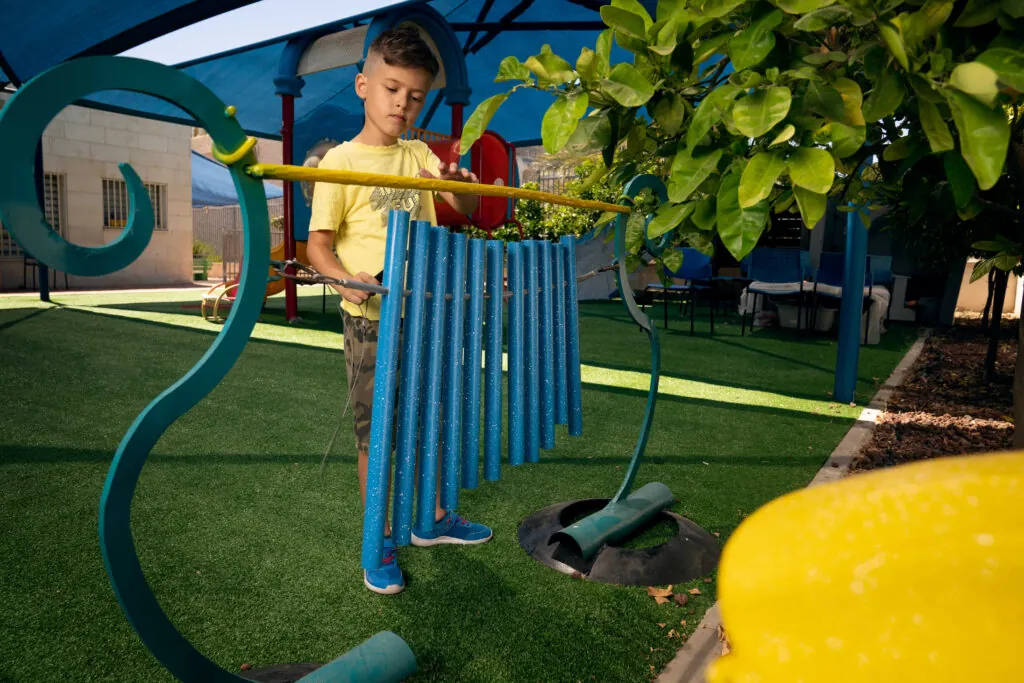
3: The Sounds of Peace
If you live in southern Israel, there is no shortage of rockets flying across your skies. Most residents of the towns near Gaza have a mere 15 seconds to find shelter when the Code Red siren goes off. (Even locations further away like Jerusalem and Tel Aviv have only 90 seconds.) The constant threat of an explosion being just 15 seconds from any given moment has taken its toll on the inhabitants of towns that used to be so peaceful their houses weren’t even built with bomb shelters. Today most of the population, especially the children, suffer from some level of PTSD. Still, they refuse to give up their homes to terrorists.
It was one such Hamas rocket that landed over a decade ago near an Israeli named Yaron. A blacksmith by hobby, he began his journey by melting down the rockets into a variety of symbols of peace as sculptures and jewelry. We’ve long supported his work and have loved giving away his creations as gifts. He has since had his work displayed in a variety of distinguished places including the U.N. headquarters and other international government and cultural buildings.
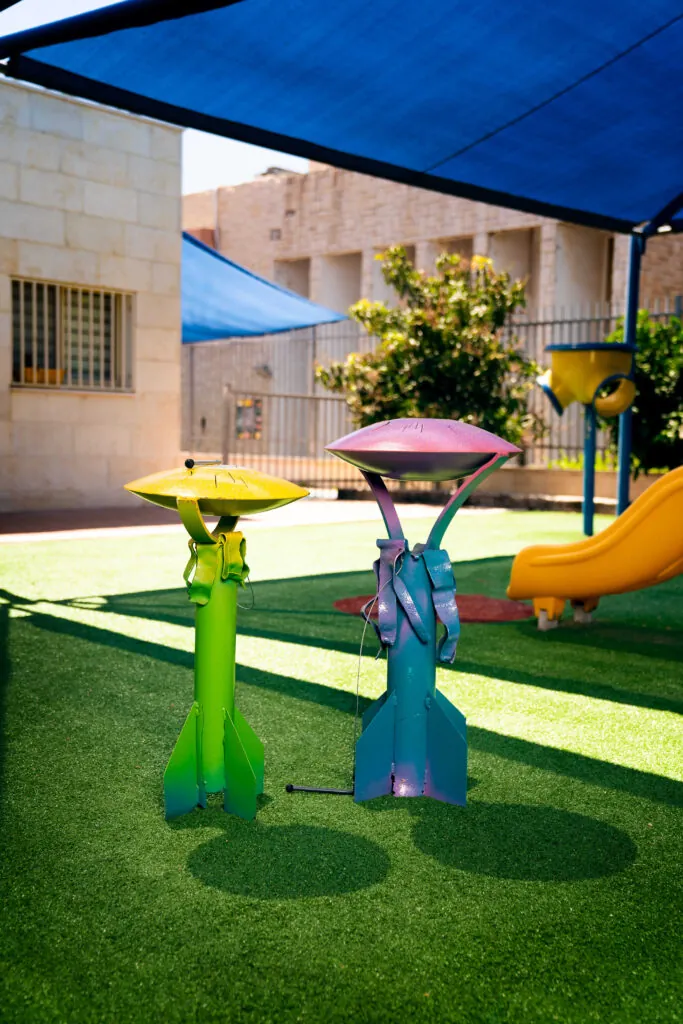
Just before the pandemic hit, Yaron wrote us and shared his latest ideas. He was designing musical instruments made from rockets. He wanted to place these instruments in play areas so children (and adults) who were being fired on could experience the victory that comes with playing music with those rockets the day after.
We knew instantly we wanted to fund the project. While beating swords into plowshares is promised to take place when war is no longer a threat, beating rockets and missiles into musical instruments would be our pre-emptive statement of worship before the Lord.

The instruments—including two steel drums, a xylophone and a lyre shaped not unlike the one King David would’ve played (that is specially designed to play the notes to Israel’s national anthem)—were installed in the Hosen Rehab center for PTSD sufferers in Ashkelon. The center offers trauma therapy for free to all the surrounding residents and often engages in preemptive counseling to prepare the more vulnerable sects of society for when they will inevitably come under threat. This made the Hosen center a perfect place to set the brightly-painted weapons-turned-instruments.
When the instruments arrived, the kids would stand in line to play them. And during this most recent round of rocket fire, when Ashkelon had over a thousand rockets fired on it in a period of less than two weeks, the counselor told of moments where the children played the instruments while in the distance the sound of explosions from the Iron Dome intercepting rockets could be heard. The Sounds of Peace are a divine demonstration of the confidence of the Jewish people that because of their God, there will always be the day after.
You can help make more IStandwithIsrael stories like these. When you donate to Maoz Israel, you become part of stories that will continue to impact Israel for generations!

4: Marina
Marina is a student at the architectural school in Haifa. She immigrated with her family in 2008 and led a normal life, until one life-altering event. When she was in the 11th grade she was rollerblading down a hill when she ran into a bus stop. The impact shattered both her top and bottom jawbone and several of her teeth.
The medical team did a great job reconstructing her face. However, when she went into the army, she began having medical complications and doctors concluded that her jaw had grown and all the reconstruction work would need to be redone.
Unfortunately, this time Israel’s government healthcare wouldn’t cover the treatment. When Marina’s pastor heard about her situation, he encouraged her to apply to ![]() for help.
for help.
“I was honestly shocked when I heard I had been approved. I have now begun the treatment, though it will take time to complete. But I’m so happy I’m able to deal with this and not interrupt my studies. I really don’t know what I would’ve done if you hadn’t come along.”
You can help make more IStandwithIsrael stories like these. When you donate to Maoz Israel, you become part of stories that will continue to impact Israel for generations!

5: Sarah
Sarah and Alex met 15 years ago. She was a volunteer at a rehab center and he was one of the patients. During this time Alex came to the Lord and graduated from the program. Soon after they were married and began serving in a local congregation. Together they had two children and eventually with steady jobs for each of them, Alex decided they should purchase an apartment.
Then the pandemic hit and with it came the long lockdowns. The isolation and loneliness that became such a prominent part of the COVID experience triggered a drinking spiral. Alex drank so much he ended up in the hospital with organ damage. Sarah visited him in the hospital to pray with him and he came to a place of repentance before the Lord. The next day the doctors decided to induce a coma to give his body the ability to rest and heal without the pain. However, days later, when they disconnected the coma-inducing drugs, he didn’t wake up. Doctors ran tests and found the cause to be a certain bacterium had infected his blood.
For some reason, treating this bacterium required additional approval from the husband’s extended family. The extended family, however, refused to approve the treatment until it was too late, and Alex passed away.
Even while Sarah was processing everything it meant to be a widow, she had immediate needs to take care of at home including a plumbing issue and a leak in the roof that needed to be addressed before the rains. ![]() recognized the most pressing need was to make sure Sarah and her kids had some calm from the storm at home and covering the cost of the repairs was a very practical way to strengthen them in this difficult time.
recognized the most pressing need was to make sure Sarah and her kids had some calm from the storm at home and covering the cost of the repairs was a very practical way to strengthen them in this difficult time.
You can help make more IStandwithIsrael stories like these. When you donate to Maoz Israel, you become part of stories that will continue to impact Israel for generations!

6: Dani
My relatives came to Israel almost a decade before I arrived with my mom and two younger brothers in 1995. Back in the 80’s, they had to walk from Ethiopia to Sudan where Israeli planes picked them up. Thankfully, we were taken straight from the airport in Ethiopia’s capital, Addis Ababa.
We arrived in Israel and spent our first four years in the caravans designated for immigrants. There we studied Hebrew and learned about the new nation in which we lived. We were granted all sorts of benefits as new immigrants and by our fourth year in the country my mother was able to purchase a small apartment for us.
My mother would never get to live in that apartment. She died suddenly and we were left with no one. As the oldest brother, I took it on myself to care for my two younger brothers. The oldest was an adult by now, but he had epilepsy and would often have seizures that resulted in terrible falls or burns while cooking.
My youngest brother was still in school when our mother died. He was the closest to her and took it the hardest, refusing to study or even leave his room. He never finished school and as soon as he turned 18, he left to go back to Ethiopia.
Ethiopia does not allow dual citizenship, so when we made Aliyah (immigrated to Israel) we gave up our Ethiopian passports. My brother, therefore, entered on a tourist visa and could only work odd jobs. For almost a decade, I would send him a little money every month, but I finally convinced him he needed to come back home—to Israel.
I had my hands full paying the mortgage on my mother’s apartment and caring for my other brother. So when he finally agreed to return to Israel, I took out a loan to get a round trip ticket for me and a one-way ticket for him.
When we arrived at the airport in Addis Ababa to fly back to Israel, my brother was arrested for overstaying his tourist visa. We spent another week paying fines and getting his paperwork worked out and finally arrived home in Israel.
Confident that my youngest brother was in a good place in terms of getting resettled in the land, I took a trip to the U.S. I wanted to try to get a green card, to work a bit and save up some money so I could return to Israel, find a bride and settle down. Six months into my stay in the U.S., I understood this wouldn’t happen and returned to Israel. In my absence, my youngest brother had promised to make payments on my loans. However, when I returned, I discovered he hadn’t and the two banks from which I had taken out loans had sent them to the government collections agency.
I tried to explain the circumstances, but the judge ruled against me. The ruling added all sorts of fines and interest which then caused the debt to balloon to five times what it had been originally. I had to pay hundreds of dollars each month for a total of seven years, and still it didn’t even cover the interest, so the debt only grew.
I work as a security guard, sometimes working a night shift, going home to sleep for a few hours and then returning to work the afternoon shift. Between my work schedule and my responsibility to my brothers, I didn’t ever see myself being able to get beyond this and build a life. I tried to get the debt canceled, as it was clear I would never be able to pay it off, but I was denied.
Finally, a friend told me about ![]() . I connected with someone from their team and explained the situation to him. He bypassed the collections agency entirely and went directly to one of the banks involved and negotiated a reduction of the debt. They finally agreed to lower the amount to the original loan cost but said the offer would only be valid for one week. One week! It was the best and worst news I could’ve gotten. A light at the end of the tunnel! But, how could I come up with such funds in one week?
. I connected with someone from their team and explained the situation to him. He bypassed the collections agency entirely and went directly to one of the banks involved and negotiated a reduction of the debt. They finally agreed to lower the amount to the original loan cost but said the offer would only be valid for one week. One week! It was the best and worst news I could’ve gotten. A light at the end of the tunnel! But, how could I come up with such funds in one week?
![]() ’s committee held an emergency meeting and approved the entire payment to that bank. It’s like waking up to a new life. A life where I can now begin to build something rather than just barely hang on. Saying “I thank God for you” seems an insufficient way to put it, but these are the only words I have.
’s committee held an emergency meeting and approved the entire payment to that bank. It’s like waking up to a new life. A life where I can now begin to build something rather than just barely hang on. Saying “I thank God for you” seems an insufficient way to put it, but these are the only words I have.
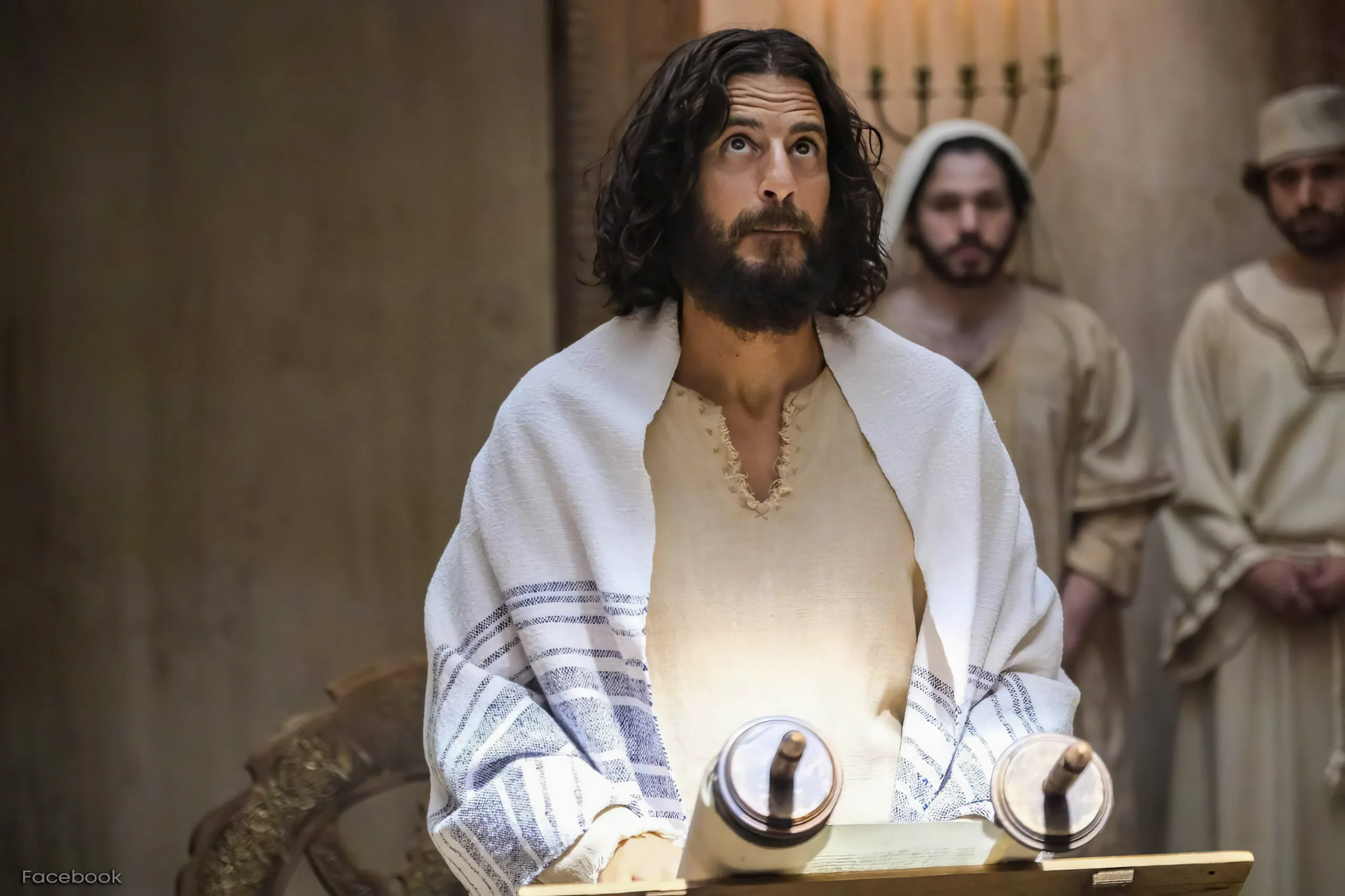
Christianity is a Jewish Covenant
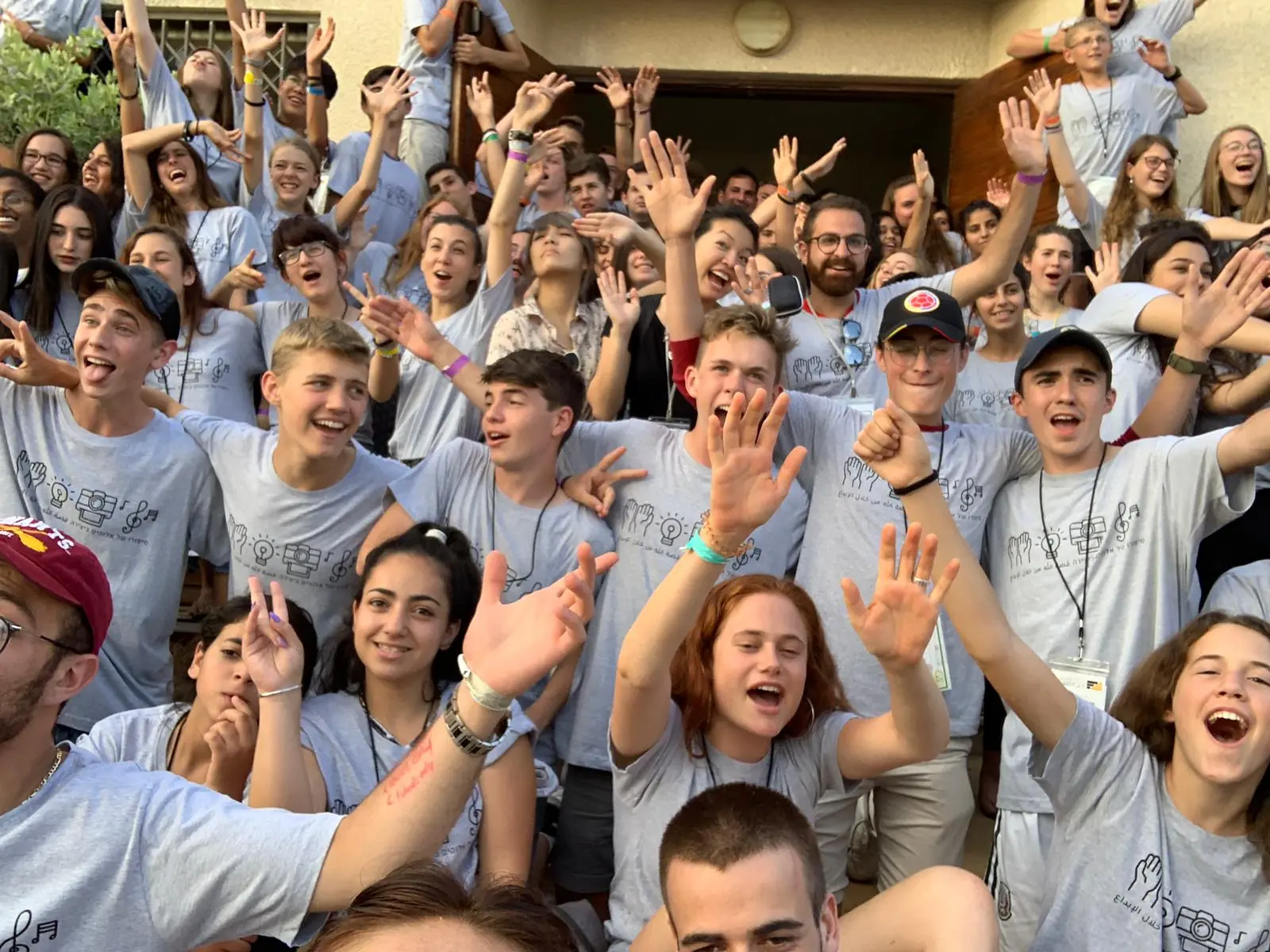
Shared Faith, Shared Future: Arab and Jewish Unity
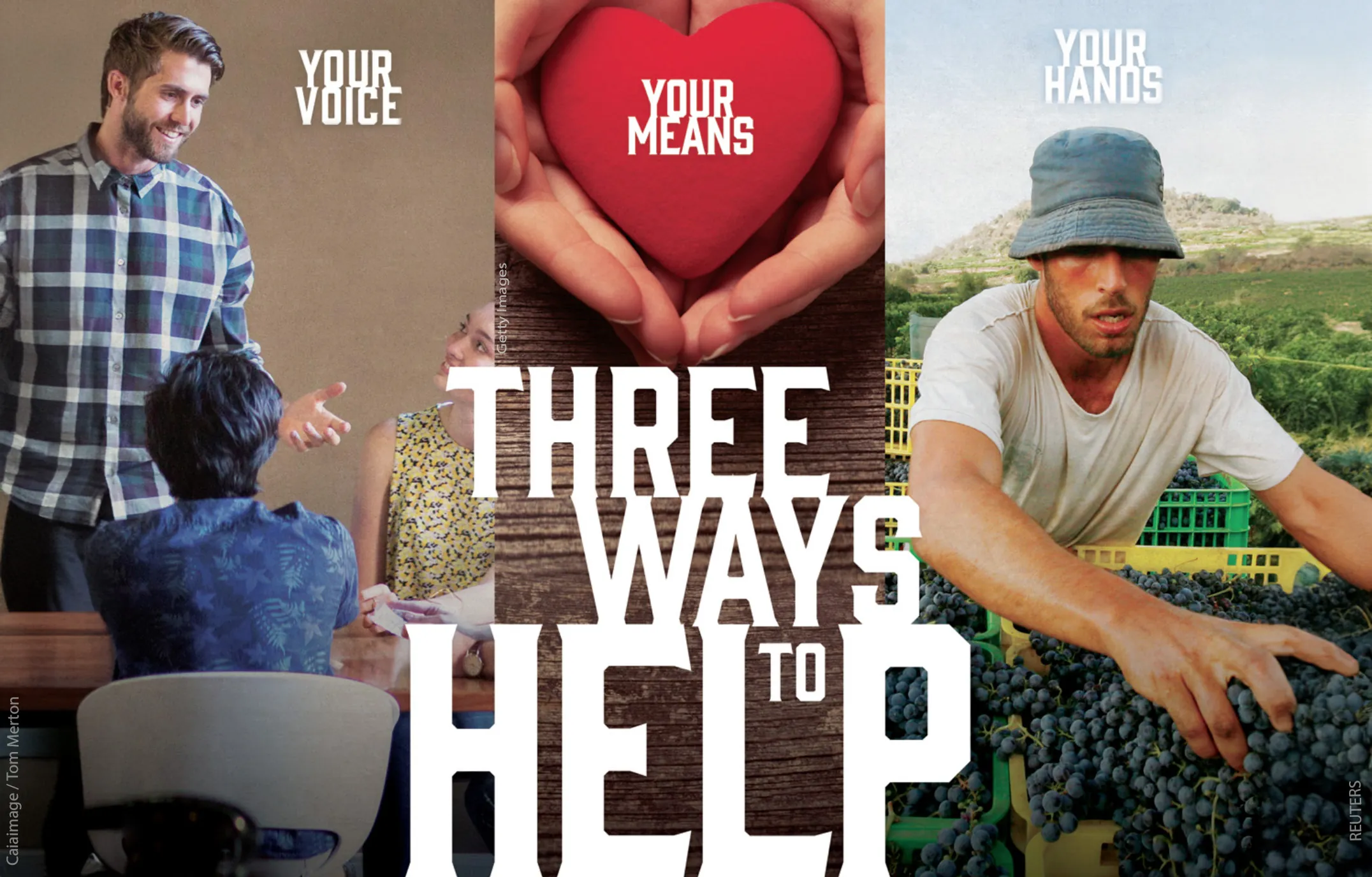
Be the Light for Israel

And the Truth Shall Keep You Free
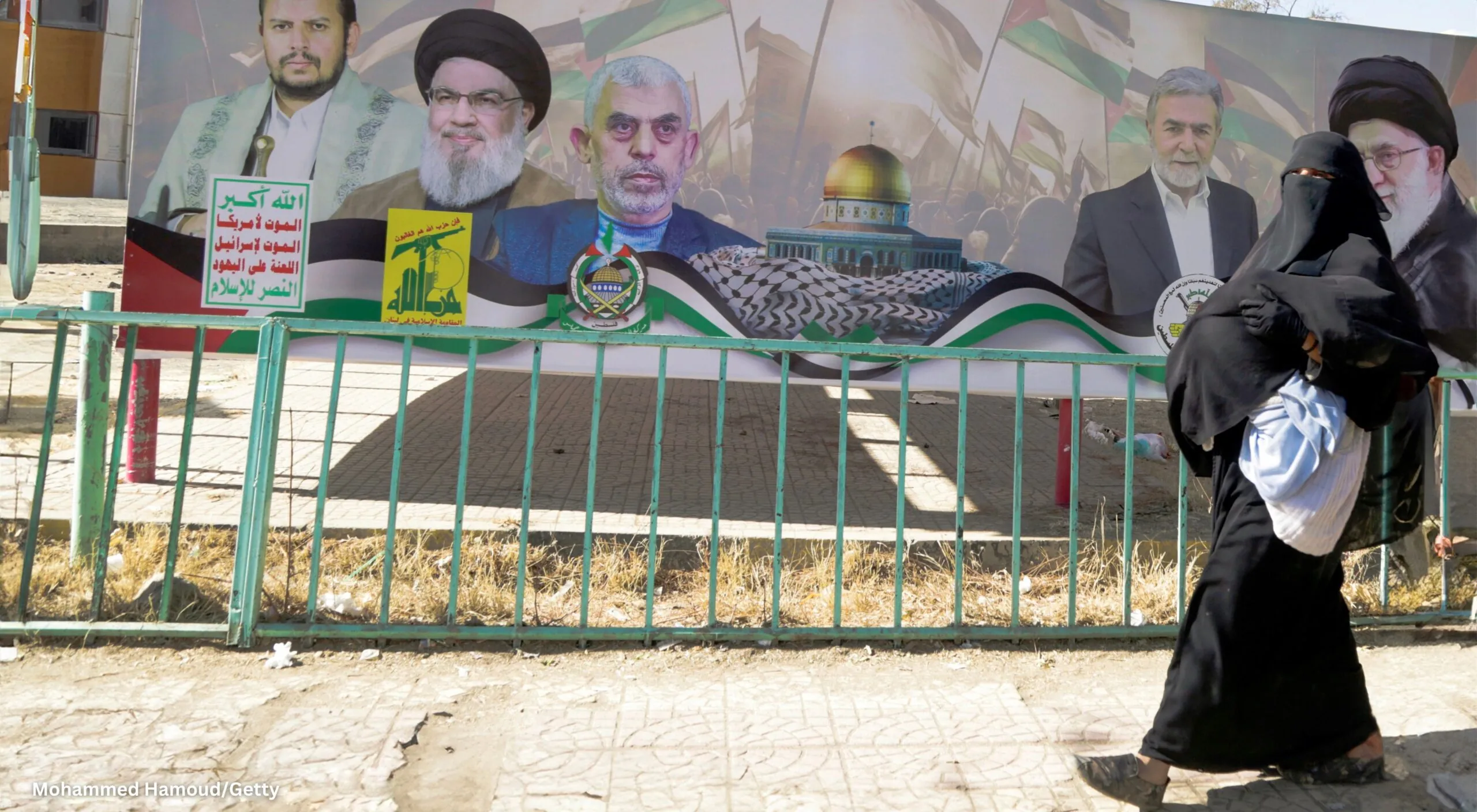
Iran by Proxy
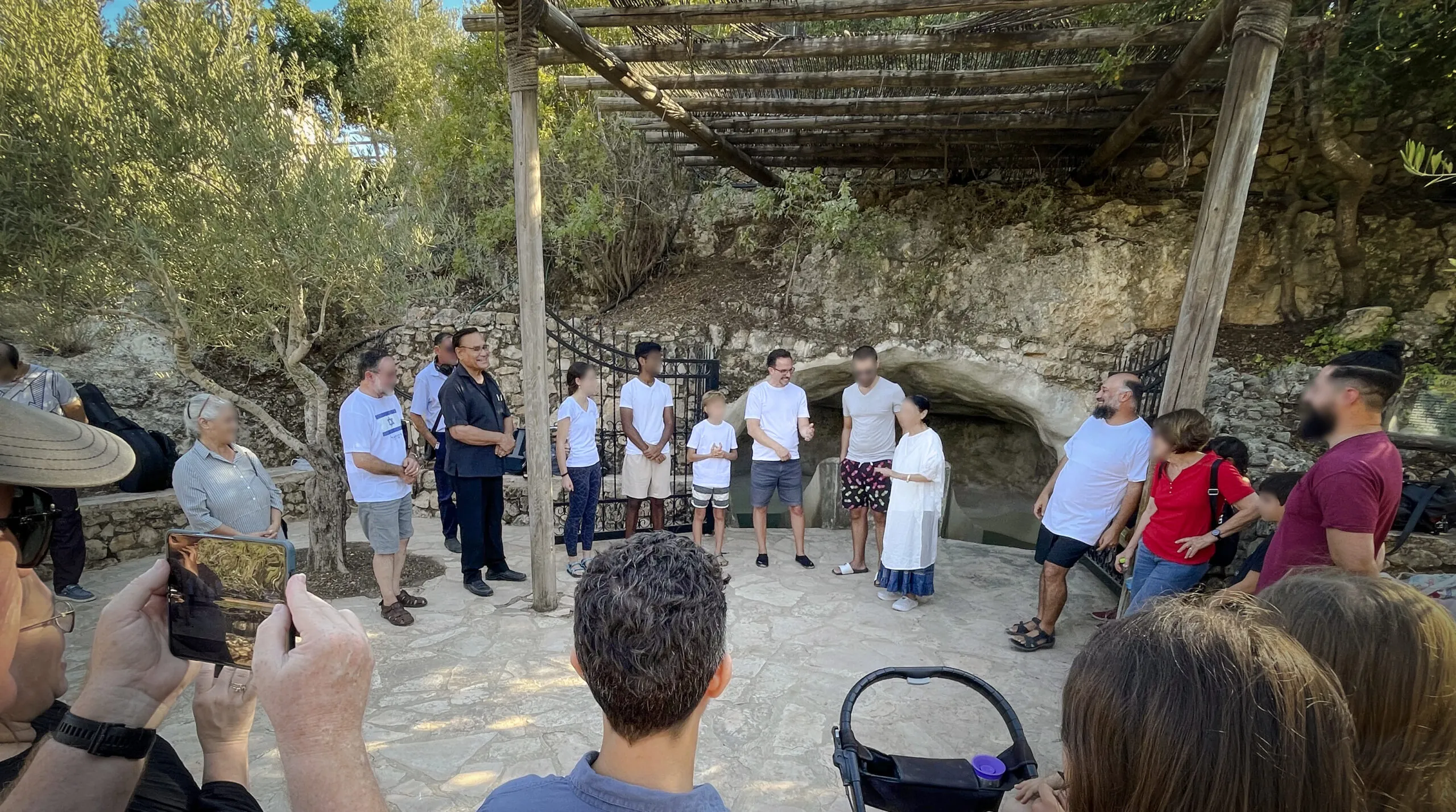
Strong Congregations Make a Strong Body
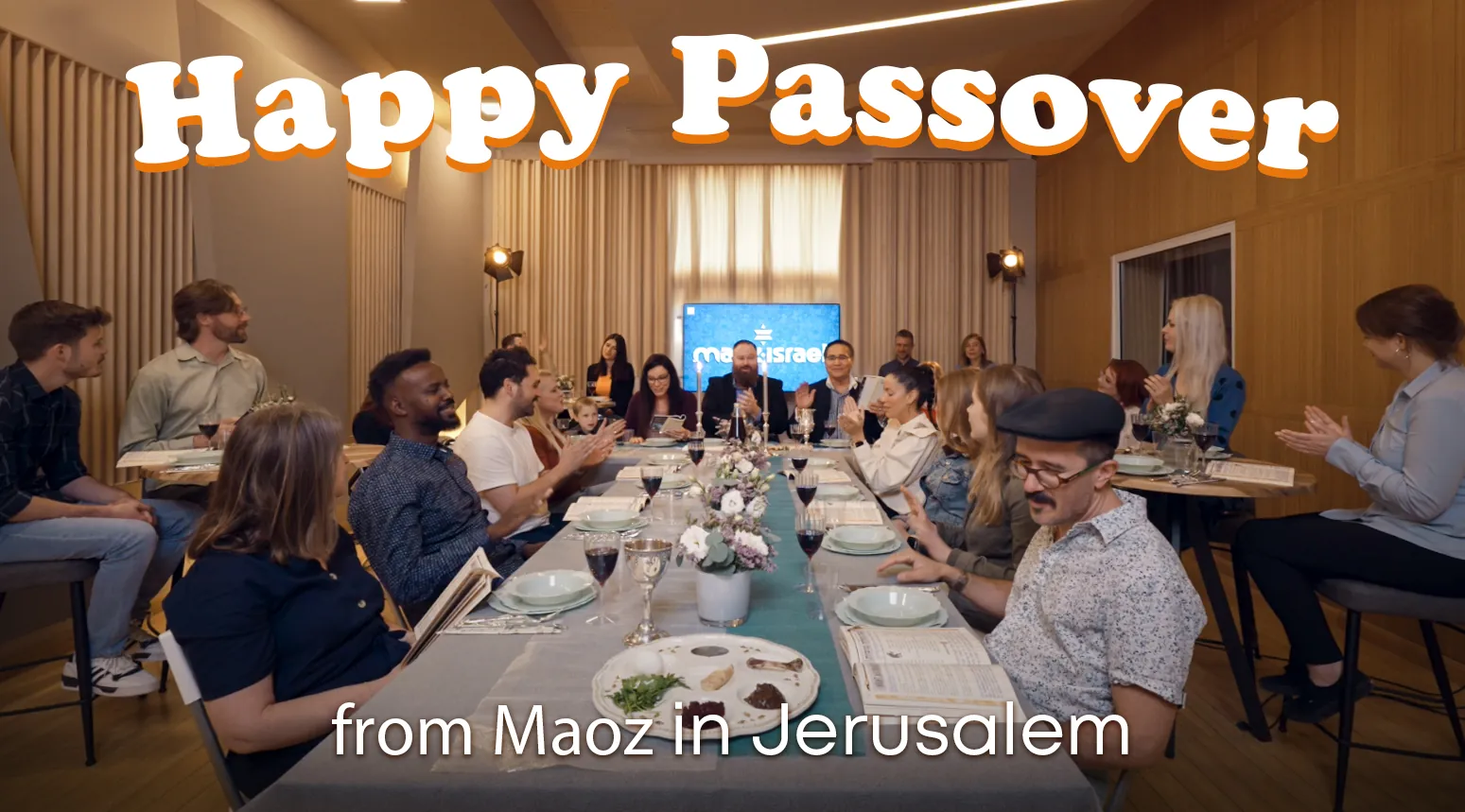
Happy Passover!

What is a Promised Land?

The Scariest Parable in the Bible
